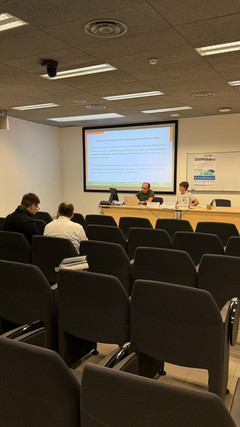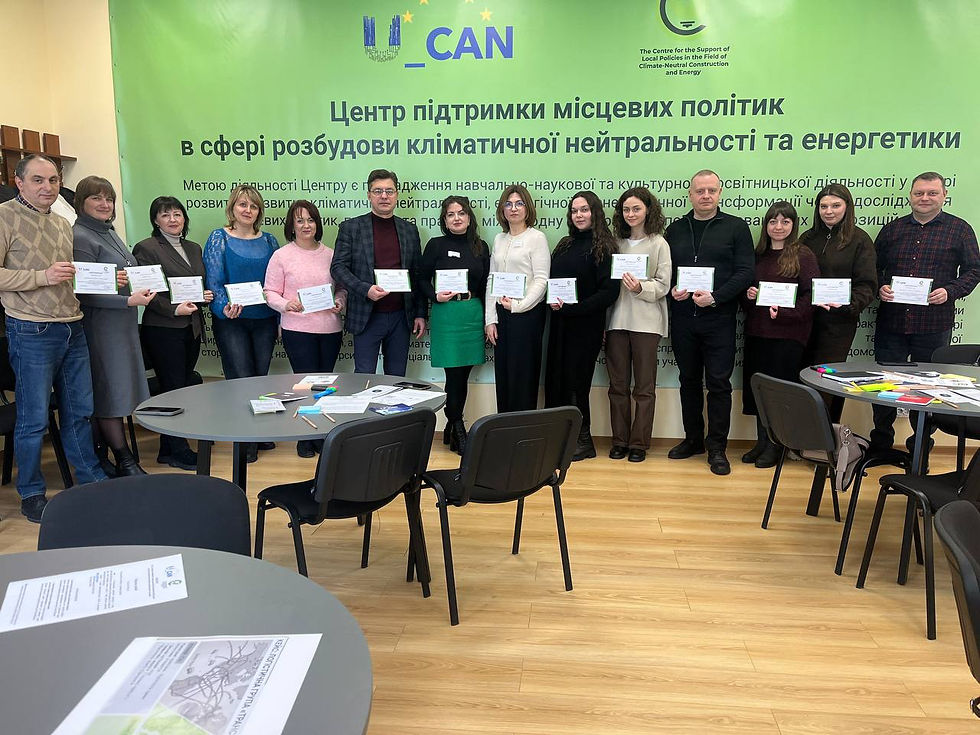U_CAN at MetroLivEnv 2025: Advancing the Climate Neutrality Agenda for Ukrainian Cities
- Jun 24, 2025
- 2 min read
Updated: Jul 8, 2025
From 11 to 13 June 2025, the U_CAN project made a significant contribution to the MetroLivEnv 2025 conference, held in Venice, through the organisation of Special Session No. 9, titled "Modernisation of technologies and practices towards cities carbon neutrality (U_CAN Project)". This session was led by U_CAN consortium partner Università degli Studi dell’Aquila (ULA), with Professor Marianna Rotilio and PhD researcher Chiara Marchionni serving as session chair.
The session brought together academics and practitioners to examine key innovations and strategies aimed at achieving climate neutrality in urban contexts, with a particular focus on Ukrainian cities. Six high-level contributions were presented, including one by U_CAN partner Joanneum Research Forschungsgesellschaft mbH (JRG), represented by PhD Yevhen Terekhov.
Key topics covered during the session included:
· The Promotion of the Carbon Neutrality of Ukrainian Cities Through Participatory Processes (ULA)
· Fostering Climate Neutrality: the Role of the U_CAN Project in Sustainable Planning of Ukrainian Territories (ULA)
· Current Decarbonization Technologies in Ukrainian Cities in the Energy Production and Consumption Sector Using Solar Energy (JRG)
These presentations reflected the mission of the EU “Climate-Neutral and Smart Cities” (CNSC) initiative, which is part of the European Green Deal (EGD). The CNSC Mission supports cities in achieving climate neutrality by 2030 or 2050, and U_CAN contributes to this goal by supporting Ukrainian cities through bottom-up, inclusive, and science-based pathways.
Special Session No. 9 provided a platform to showcase the technological innovations and methodological approaches being developed within the U_CAN project. The session emphasised:
· Modernisation of technologies and practices for urban planning
· Development of strategies, roadmaps, and decision-making tools
· Renovation and energy retrofit protocols for existing buildings
· Adaptive reuse of building stock in response to local climate conditions
· Flood risk mitigation and sustainable spatial planning
By fostering a multidisciplinary design approach tailored to local contexts, U_CAN seeks to deliver practical guidelines for decarbonisation in Ukrainian municipalities. The project’s emphasis on early-stage strategy formulation and multi-scenario design enables the adaptive reuse of infrastructure and supports data-informed decision-making at the municipal level.
The active engagement of researchers and stakeholders during the session highlighted the importance of international collaboration and knowledge exchange in advancing the climate neutrality of cities. U_CAN will continue to facilitate these dialogues and partnerships as it supports Ukrainian cities on their path toward a sustainable, climate-resilient future.
Read more here.
Download the final programme here.
Read a summary of the event here.






























Comments